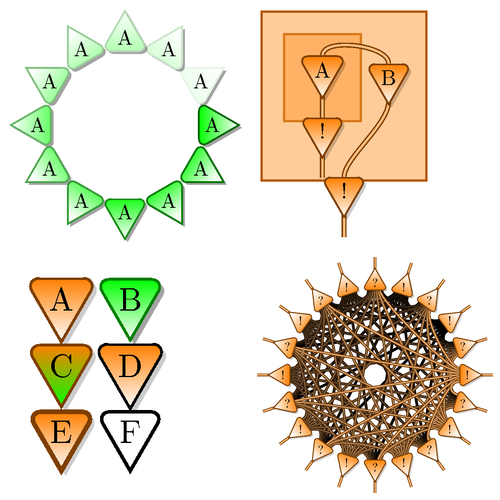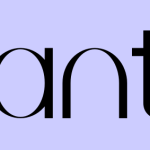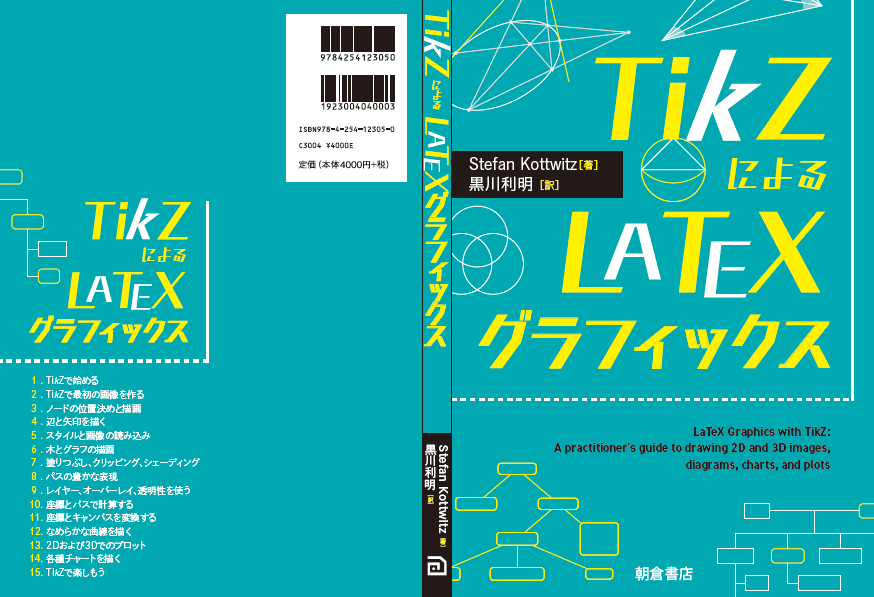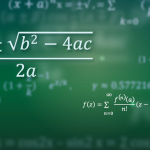These examples are from the documentation of the tikz-inet package available on CTAN. The package helps you to draw interaction nets (a graphical programming paradigm close to functional programming and linear logic).

Edit and compile if you like:
% Interaction nets
% Author: Marc de Falco
\documentclass{minimal}
\usepackage[fancy,color=orange]{tikz-inet}
\begin{document}
\begin{tikzpicture}
\newcount\angle
\foreach \x in {1,...,12} {
\pgfmathsetcount{\angle}{360*\x/12+90}
\inetcell[\inetcellstyle=green!\x0,
at=(\the\angle-90:1.5cm)]
(c\x){A}[\angle]
}
\end{tikzpicture}
\begin{tikzpicture}
\inetcell{A}
\inetprombox{(A)}(pa)
\inetcell[at=(bpa.east),right=5pt]{B}
\inetwire(B.middle pax)(A.middle pax)
\inetprombox{(bpa)(pa)(B)}(p)
\inetwire(A.pal)(pa.middle pax)
\inetwirefree(pa.pal)
\inetwirefree(p.pal)
\inetwire(B.pal)(p.middle pax)
\end{tikzpicture}
\begin{tikzpicture}
\matrix{
\inetcell{A} &
\inetcell[fancycellstyle=green]{B} \\
\inetcell[bottom color=green]{C} &
\inetcell[draw=black]{D} \\
\inetcell[very thick]{E} &
\inetnofancy \inetcell{F} \inetfancy \\
};
\end{tikzpicture}
\begin{tikzpicture}
\newcount\angle
\newcount\order
\order=10
\newcount\arity
\pgfmathsetcount{\arity}{\order-1}
\foreach \x in {1,...,\order} {
\foreach \y/\symbol in {0/!,1/?} {
\pgfmathsetcount{\angle}
{(180*(2*\x+\y))/\order+90}
\inetcell[at=(\the\angle-90:\the\order*1.8ex),
arity=\order-1](c\y\x){\symbol}[\angle]
\inetwirefree(c\y\x.pal)
}
}
\newcount\nextcell
\newcount\nextport
\newcount\depth
\foreach \x in {1,...,\order} {
\foreach \y in {1,...,\arity} {
\pgfmathsetcount{\nextcell}
{mod(\x+\y-1,\order)+1}
\pgfmathsetcount{\nextport}
{\arity-\y+1}
\pgfmathsetcount{\depth}{(\x-1)*100/\order}
\inetwire[\inetwirestyle=\inetcolor!\the\depth!black]%
(c0\x.pax \y)(c1\the\nextcell.pax \the\nextport)
}
}
\end{tikzpicture}
\end{document}
Click to download: interaction-nets.tex • interaction-nets.pdf
Open in Overleaf: interaction-nets.tex


